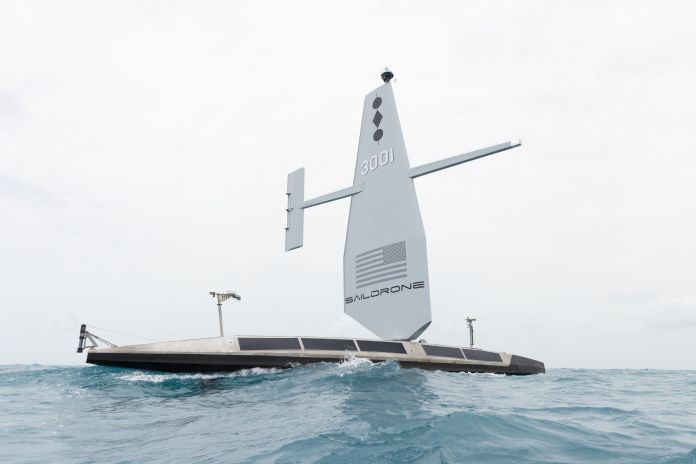GRAND CAYMAN, Cayman Islands – A comprehensive marine survey of the Cayman Islands’ Exclusive Economic Zone (EEZ) is currently underway, beginning Tuesday 13 August. Led by US-based ocean mapping company Saildrone, the survey will allow the existing nautical charts to be updated for Safety of Navigation, as well as guide policymaking for sustainability and climate resiliency, maritime security and disaster response.
The survey is being funded by London & Amsterdam Trust Company Limited, as an extension of philanthropy and public-private partnership.
Premier and minister for district administration & lands Juliana O’Connor-Connolly expressed the benefits of the Cayman Islands undertaking the marine survey.
“Our waters hold such great value to us for a myriad of reasons ranging from recreational to economic. Conducting this assessment will allow our government to make data-driven decisions that will strengthen our policies and legislations as it relates to our maritime infrastructure”, she stated. “I am grateful to all parties who have worked to bring this initiative to this junction and am eager to learn of the survey’s results and outcomes.”
- The survey will assess the following areas:
- Coastal Waters 25m to 12 nautical miles offshore;
- Fishing Banks, namely 12 Mile Bank, 60 Mile Bank, Pickle Bank and Lawfords Bank;
Cayman Trough and the remainder of the Cayman Islands EEZ outside of the Cayman Trough.
Once the survey has been completed, it will be evaluated by the UK Hydrographic Office and included on nautical charts. The data will then be provided to the Cayman Islands Government and is beneficial to partnering agencies from the ministry of district administration and lands, ministry for border control, department of lands and survey, Cayman Islands Coast Guard and the Port and Maritime Authorities of the Cayman Islands.
Local mariners are advised that the Saildrone vessel will be in various areas of the Cayman Islands’ water over the coming weeks and should exercise caution when approaching it.
Saildrone may also deploy a secondary vessel to expedite measurement efforts. The surveying is expected to last approximately six months.

